Image Gallery: Snakes of the World
Atlantic Salt Marsh Snake
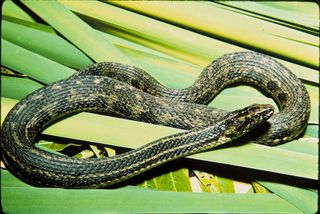
Found only in Florida, the Atlantic Salt Marsh Snake is threatened by waterfront development that eats into its habitat.
Broad-banded Copperhead
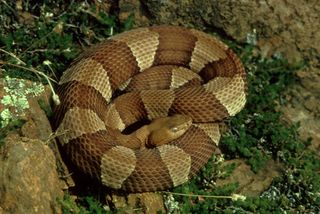
The copperhead is the most common venomous snake in the Eastern United States.
Brown Tree Snake
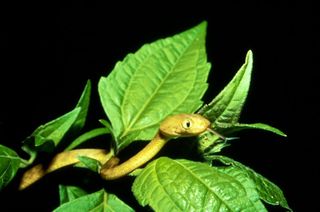
The brown tree snake is venomous, but its venom is not very dangerous to adults. However, the snake has wrecked havoc on the island of Guam, where it is an invasive species. Brown tree snakes have destroyed Guam's native bird population and often cause power outages by climbing on electrical wires.
Bullsnake
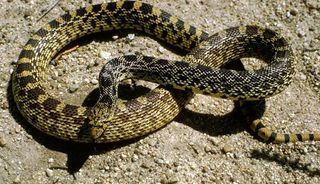
Bullsnakes are sometimes mistaken for rattlesnakes, but they're nonvenomous. In fact, the snakes are important for controlling the rodent population in areas such as Nebraska.
California Glossy Snake
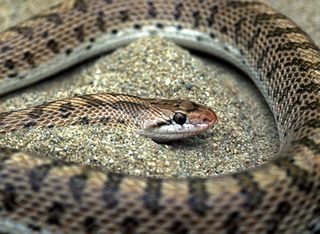
This harmless serpent lives in inland California, where it burrows in the ground by day and hunts rodents and small birds by night.
Canebreak Rattlesnake
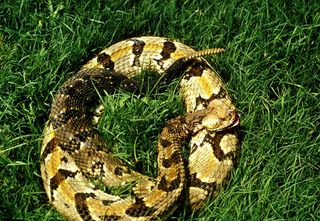
Also known as timber rattlesnakes, these rattlers live in the eastern United States. They can deliver a venomous bite, but usually strike out only when threatened.
Copperhead
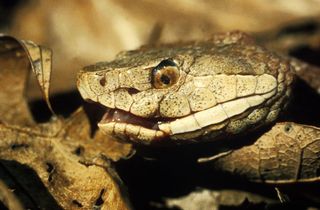
Copperheads are pit vipers, but their venom is relatively weak. Still, it's a good idea to avoid copperhead bites: They can cause extensive scarring, tissue death and pain.
Sign up for the Live Science daily newsletter now
Get the world’s most fascinating discoveries delivered straight to your inbox.
Coral Snake
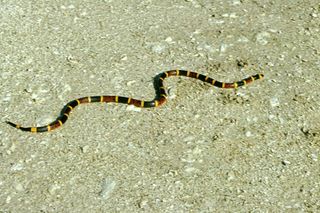
"Red on yellow, kill a fellow..." Coral snakes pack a nasty bite, inspiring folk rhymes to help people tell them apart from their non-venomous cousins. Red bands touching yellow bands are a sign of venom in coral snakes, but only in North American species. On other continents, venomous coral snakes come in many colors and patterns.
Hog-nosed Snake
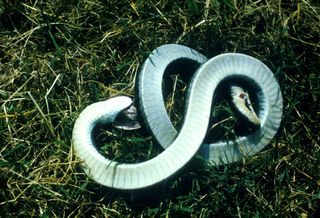
Hog-nosed snakes are known for two things: Their upturned snouts and their tendency to play possum. When threatened, the snakes will often hiss and pretend to strike. If that fails, they roll over on their backs and play dead.
Indigo Snake
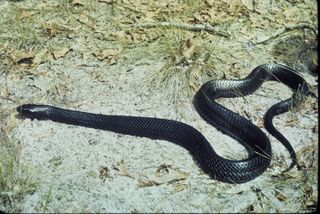
These harmless snakes range across the southern United States.
Night Snake, New Mexico
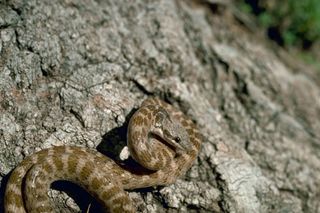
The night snake lives in dry areas of western North America. Easily mistaken for a rattlesnake, the reptile is only dangerous to rodents and other prey.
Pine Woods Snake
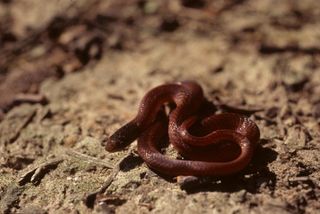
The slender pine woods snake is also called the yellow-lipped snake because of the band of yellow stretching across its mouth.
Rat Snake (baby)
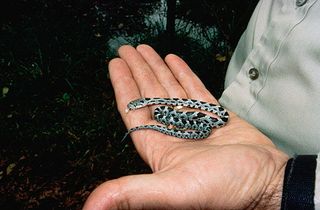
Rat snakes are docile and harmless, making them popular as pets.
Sri Lanka Alibino Cobra
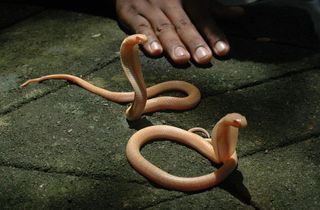
Albino cobras are exotic but deadly. In February 2011, a New Jersey man nearly died when his pet albino cobra bit him.
Western Diamondback Rattlesnakes
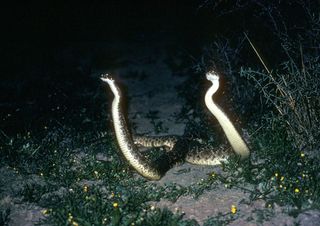
The western diamondback can strike at a distance of half its body length -- not too shabby for a creature that can grow 4 feet (120 centimeters) long.
Wandering Garter Snake
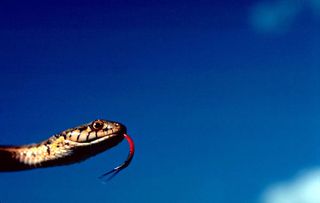
These non-venomous snakes are the most common reptile in Wyoming's Yellowstone National Park. They live near water and eat small rodents as well as tadpoles, snails and leeches.
Western Long-nosed Snake
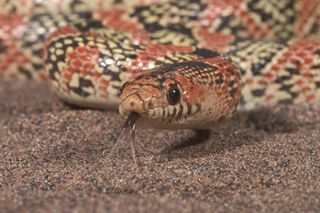
This tricolored serpent lives in desert habitats in California, Nevada, Utah and Arizona.
Egyptian Cobra
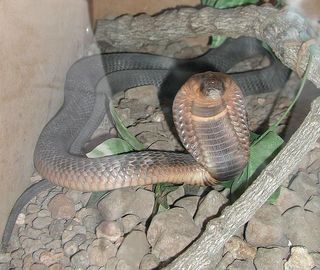
Egyptian cobras possess a deadly venom that attacks the nervous system.
